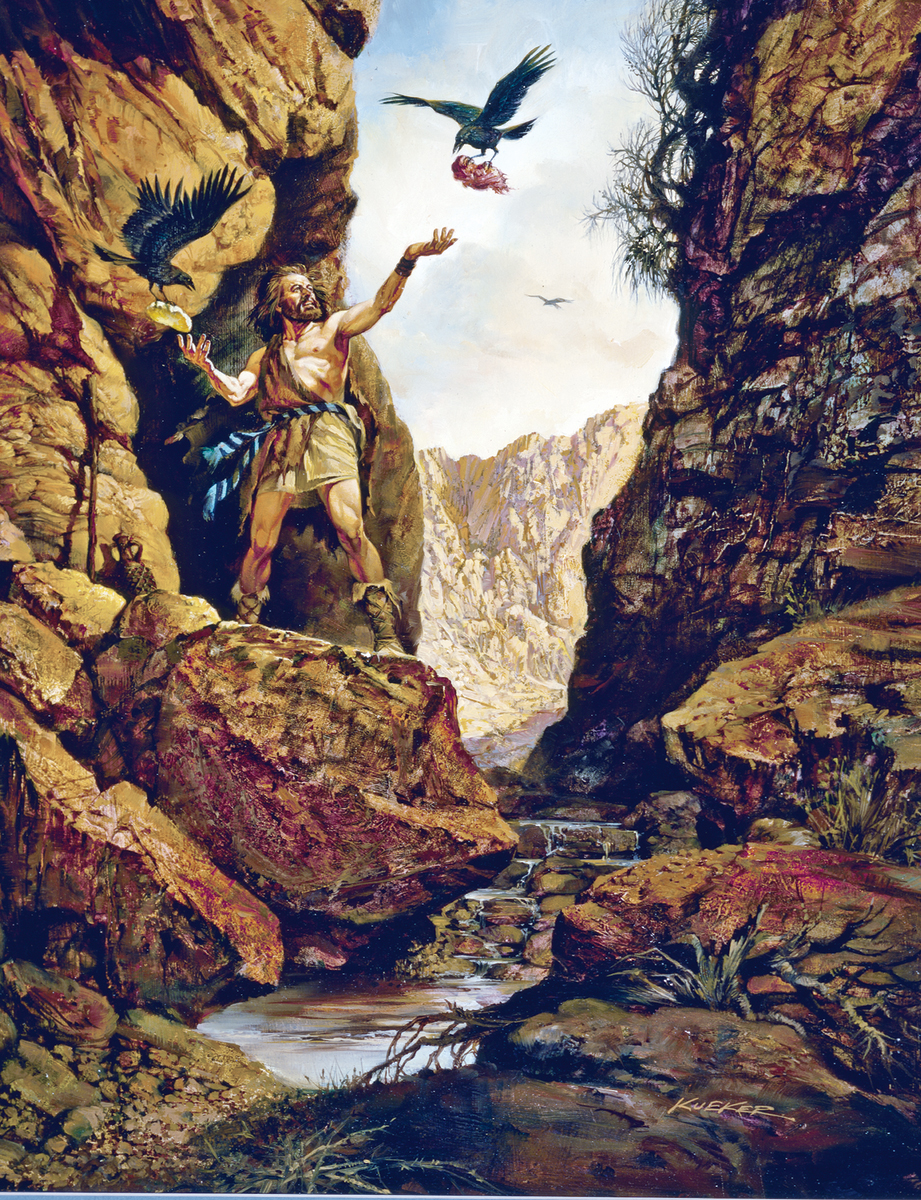The text for this lesson is 1 Kings7:1–6
Key Point
- God pours out His everlasting love for me and is with me, even when everything seems against me, sustaining me with His Spirit, the water of life.
- Law: Because of sin, the world is often wicked and hostile, and I experience suffering because of it.
- Gospel: But even during these times, God is with me, pouring out His love for me in Christ and graciously providing for my needs.
Context
- This Bible account actually gives us the first appearance of Elijah the Tishbite. Elijah is one of the most important of the Old Testament prophets. He is sent to prophesy at the beginning of Ahab’s reign. We read in 1 Kings 16 that Ahab was apostate from the beginning. He worshiped the false gods of his wife, Jezebel, the daughter of the king of Sidon. Elijah proclaims the onset of a drought so severe that there will not even be dew on the ground. Through this, God shows Ahab his sin in a clear and powerful way.
Commentary
- After the reign of Solomon, the kingdom of Israel that had been united under Solomon and his father, David, was divided. While the Davidic line (which would culminate in the birth of Jesus) continued in the Southern Kingdom, the Northern Kingdom was ruled by a series of dynasties unconnected to the Davidic line.
Omri, who ruled the Northern Kingdom before his son Ahab, had continued the northern custom of worshiping false gods alongside the true God. He also arranged a political alliance between his kingdom and the Sidonians to the north by marrying his son to Jezebel, the king of Sidon’s daughter. While this alliance secured a time of peace and economic prosperity, it also raised the worship of false gods to even greater prominence in the Northern Kingdom.
Jezebel was a priestess of Baal and brought hundreds of false prophets with her to Israel. For his part, Ahab built a temple to Baal in Samaria and introduced Asherah poles, used in the worship of the false god Baal’s female consort.
The writer of the First Book of Kings tells us that “Ahab did more to provoke the Lord, the God of Israel, to anger than all the kings of Israel who were before him” (16:33). The Lord sends Elijah into this situation to confront the king. The prophet tells Ahab there will be neither dew nor rain in the land of Israel except by the Lord’s command. This is the consequence of the idolatry that Ahab and Jezebel have brought into Israel.
God then commands Elijah to go to the brook Cherith and “hide” (17:3). As is often the case, the king does not like the message of the prophet and will try to blame him for it when it comes to pass.
While the rest of Israel begins to suffer because of the wrath God is pouring out on Ahab, God is with Elijah and cares for him. He sends ravens to Elijah with bread and meat in the morning and in the evening. Even in the midst of wrath, God loves to show mercy.
Throughout Elijah’s ministry, God shows the abundance of both His mercy and protection. Elijah lives only because God protects him and provides for his physical needs. This provision happens at the beginning of the prophet’s ministry and even during the times Elijah complains and doubts.
In the Lord’s Prayer, Jesus teaches us to rely on our heavenly Father for our daily bread. And, through His blood shed on the cross, Jesus provides us with the forgiveness of sins to sustain and nourish us.






